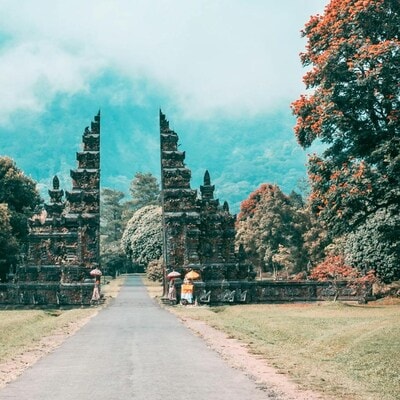[
]
In a bid to curb overdevelopment and congestion in Bali, one of the world’s most popular tourist destinations, Indonesia plans to impose a moratorium on the construction of hotels, nightclubs, and villas. The move aims to preserve the island’s agricultural land and safeguard its environment from the adverse impacts of rapid tourism growth, reported The South China Morning Post.
Coordinating Maritime Affairs and Investment Minister Luhut Pandjaitan announced the suspension on Sunday, stating that the moratorium could last up to a decade, depending on government evaluations.
“We’ll see later [how long the moratorium is in effect]. It could be five years, it could be 10 years. It just depends on the evaluation,” Luhut said.
The proposed freeze on construction follows a formal request by Bali’s acting governor, Sang Made Mahendra Jaya, who urged the central government to address overdevelopment in the island’s busiest areas: Denpasar, Badung, Gianyar, and Tabanan. These regions are at the heart of Bali’s tourism boom, which has caused environmental strain and community frustration.
Tourism surge and its fallout
Since reopening to international visitors post-pandemic, Bali has experienced a sharp increase in foreign arrivals, with government data showing 3.89 million tourists from January to July this year, compared to 2.9 million in the same period last year. This surge has exacerbated infrastructure pressures on the island, which is home to 4.4 million permanent residents.
Alongside the rise in tourist numbers, viral videos of unruly visitors have sparked outrage on social media, with incidents ranging from overstaying visas to disrespecting sacred sites. In response, Bali deported 340 foreign nationals last year for violations, including illegal work and inappropriate behaviour.
Minister of Tourism and Creative Economy Sandiaga Uno confirmed that a policy addressing overdevelopment was being drafted. “The government is working on a comprehensive strategy to prevent unsafe and uncomfortable conditions arising from excessive construction,” he said, adding that the focus will be on fostering high-quality tourism that benefits local communities and creates jobs.
Environmental alarm
Environmental groups have long warned that Bali’s rapid development is threatening its agricultural heritage and natural ecosystem. Made Krisna Dinata, executive director of environmental group Walhi Bali, criticised the delayed response to overdevelopment, arguing that action should have been taken years ago.
“Bali is overbuilt. Tourism has caused significant damage, with green spaces replaced by concrete,” Dinata said, noting that the island now hosts 541 hotels, compared to just 249 a decade ago.
The conversion of rice fields into villas and other commercial properties has also raised food security concerns. “We need to protect Bali’s agricultural land, which is being sacrificed for tourism accommodation,” interim governor Mahendra Jaya said, adding that water consumption by hotels is disproportionately high, further straining local resources.
Environmental experts are calling for stronger regulations to manage land use and protect Bali’s fragile ecosystem. Associate professor of environmental law Agung Wardana, however, voiced scepticism over the moratorium’s potential effectiveness. “The policy might be too little, too late. Tourism provides easy revenue for local elites, and circumventing regulations is common,” he cautioned.
A global push against overtourism
Bali’s bold step is part of a growing trend among popular destinations grappling with overtourism. Similar measures have been taken in places like Japan’s Geisha district in Kyoto, where streets have been closed off to manage tourist behaviour, and in Venice, Italy, where authorities have introduced a daytripper fee to control visitor numbers.
Bali, however, faces a unique challenge due to its heavy reliance on tourism for economic growth. With 200,000 foreign residents living on the island, the government is under pressure to strike a balance between fostering tourism and preserving local culture and resources.
Luhut reaffirmed the government’s commitment to quality tourism that honours Balinese traditions. “Without preserving our culture, tourism will not thrive. This needs to be managed properly,” he said.
First Published: Sep 13 2024 | 2:55 PM IST


